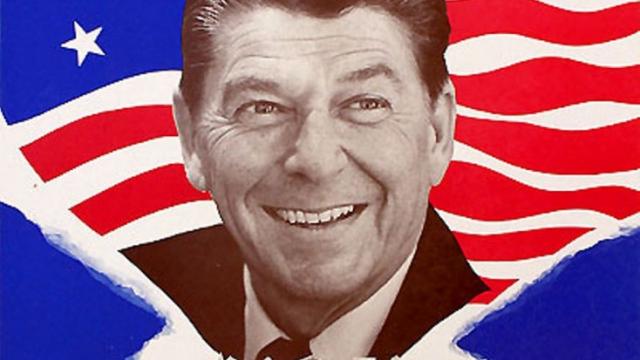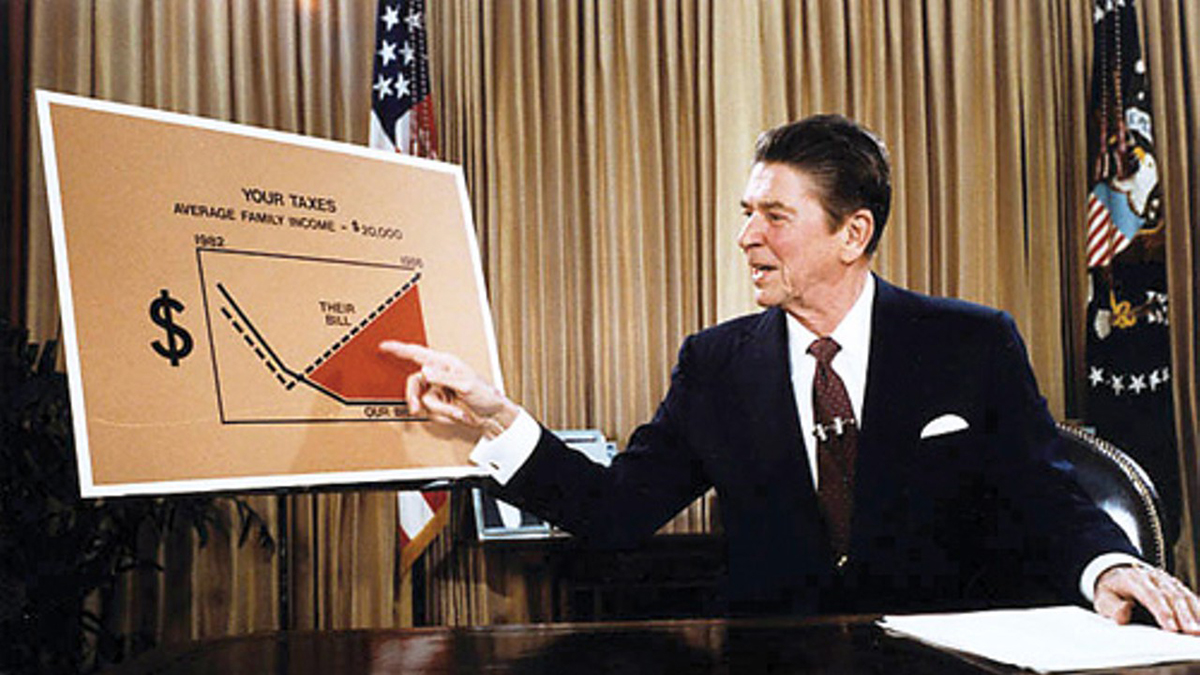
If corporations paid the same tax rate as they did under Ronald Reagan, governments in the U.S. would have enough money to fund prekindergarten for every 4-year-old in America and higher education for every American attending public colleges and universities, according to a Huffington Post review of government data.
Corporations paid an effective tax rate of 31.7 percent on average during Reagan’s eight years in the White House, according to Commerce Department figures that measure corporate profits and taxes paid to local, state, federal and foreign governments.
But in the seven full years President Barack Obama has occupied the post, corporations have enjoyed a 22.8 percent effective tax rate on their profits, Commerce Department data show.
The average annual difference, if applying Reagan-era tax rates to Obama-era profits, comes out to $166.7 billion.
That’s enough to cover the estimated $25 billion in annual costs to allow every 4-year-old in the nation to attend public pre-K programs and the close to $65 billionthat students spend on tuition to attend public colleges and universities, leaving close to $78 billion — roughly the amount that the federal government spent on food stamps during the most recent fiscal year — left over to fund other public policy priorities in the U.S. and abroad.
The figure doesn’t account for the possibility that higher tax rates could lead to changes in corporate behavior that ultimately could reduce profitability and, in turn, tax receipts.
Corporations have generated $13.1 trillion in cumulative profits over the last seven years, Commerce Department data show. They’ve paid about $3 trillion in taxes.
Corporate income taxes as a share of profits:

Plummeting corporate tax rates reflect years of bipartisan Washington consensus that sacrificed government revenue in hopes of stimulating job growth and innovation. They also are a testament to the ability of corporate lobbyists’ to shape tax law in the halls of Congress and companies’ lawyers to exploit loopholes.
The public’s loss has been shareholders’ gain. Dividend payments to shareholders have soared as corporations’ tax payments have plummeted, averaging 41.1 percent of corporate profits during Obama’s years in office compared to 30.2 percent during the Reagan years.
Dividends to shareholders have exceeded corporations’ tax payments for the last quarter century, a situation that hasn’t existed since the 1930s. From 1941 until 1989, corporations generally paid more in taxes than they paid to their shareholders, Commerce Department data show.
During that period, the U.S. economy annually grew at a pace that was more than three times faster than the last quarter century, after adjusting for inflation, according to Commerce Department data.
Profits going toward taxes vs. dividends to shareholders:

Corporations should pay much more in taxes, mostly to fund the kind of social investments — such as free universal pre-K programs and free tuition at public colleges and universities — the nation badly needs, reckons Hunter Blair, a budget analyst at the Economic Policy Institute, a Washington think tank that focuses on low- and middle-income households.
“There’s a lack of demand in the economy. If you’re really interested in growth, you’d be interested in more government spending,” Blair said.
It’s up to the government to spend more heavily to juice economic growth, because corporations aren’t investing enough for the future or in improving their current operations, experts have said.
Private-sector investment over the last few years has been the weakest of the postwar era, according to the Roosevelt Institute.
The situation has confounded prominent economists, such as former Treasury Secretary Lawrence Summers, Nobel Prize–winning economist and New York Times columnist Paul Krugman, and those inside the White House, who argue that companies should be investing much more given historically low borrowing costs and the near-record level of corporate profits.
Some claim the profits are the result of growing monopoly power by companies that dominate their industries, resulting in little incentive for them to expand or improve their products or services. Krugman said the nation is “living in a second robber baron era.” The White House is worried.
Representatives of the U.S. Chamber of Commerce, the nation’s pre-eminent big-business lobby, didn’t respond to a request for comment.
More government spending on education, particularly early education, could yield tremendous benefits. The White House, citing existing research, said in 2014 that every $1 spent expanding early education would provide roughly $8.60 worth of benefits to society.
Republicans have balked at Obama’s proposal to provide universal pre-K, citing its estimated cost. Democratic presidential candidates Hillary Clinton and Sen. Bernie Sanders (I-Vt.) have proposed tax plans that, if implemented, are projected to result in higher corporate taxes.
Obama at times has tried to limit corporate tax dodging. Over the last few years, his administration has attempted to rein in the controversial practice of corporate inversions, in which U.S. companies effectively renounce their U.S. citizenship by merging with a foreign firm and establishing their joint headquarters abroad.
In 2014 Obama said companies pursued inversions “just to avoid paying their fair share” in U.S. taxes.
Those moves had little impact until this month, when the Treasury Department stiffened the rules. Still, corporate tax avoidance remains rampant.
In a report this month, Citizens for Tax Justice, a Washington-based advocacy group, highlighted 15 companies that over the past five years had collectively paid no federal income taxes on $93.3 billion in profits. In fact, the group had a negative tax rate, thanks to nearly $1 billion in tax credits.
The Government Accountability Office, Congress’s in-house watchdog, said recently that about 1 in 5 profitable large corporations paid no federal income tax in 2012.
Companies have gotten creative at dodging taxes, using maneuvers such as the “Double Irish” and the “Dutch Sandwich” to minimize their tax bills.
Reduced attention to giant corporations’ tax schemes by the Internal Revenue Service, buffeted by years of budget cuts, could be costing the U.S. Treasury nearly $10 billion annually in forgone tax revenue, according to researchers at Syracuse University.
U.S. corporations don’t pay federal income taxes on profits recorded abroad that aren’t brought back to the U.S. The White House budget office estimates that this costs the Treasury on average more than $85 billion annually, making it the sixth-largest tax expenditure after items such as the mortgage interest deduction and employer-sponsored retirement plans.
The Congressional Progressive Caucus, a group of more than 70 Democrats, wants to tax that income and use it to improve the nation’s infrastructure. Some say the Flint water crisis in Michigan could happen anywhere.
The problem for progressives is that much of Washington, including the White House, has already decided that any reform of the nation’s business tax code shouldn’t lead to an increase in tax payments.
Corporate tax reform, they say, will have to be “revenue neutral.”
3 WAYS TO SHOW YOUR SUPPORT
- Log in to post comments













Comments
DH Fabian replied on
Priorities
And who knows, maybe a crumb could trickle down to our desperately poor. Nah, just joking.